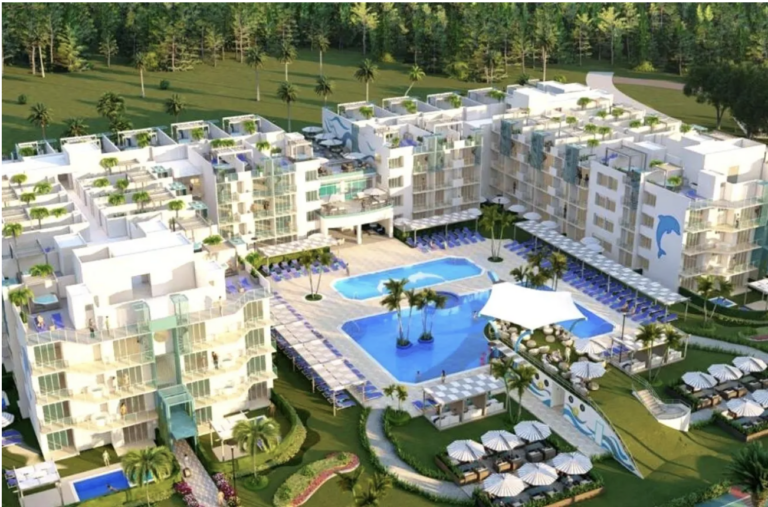La Comisión de Alto Nivel para la Prevención y el Control del Coronavirus dio a conocer nuevos detalles sobre la reapertura por fases anunciada, el pasado domingo, por el presidente Danilo Medina.
Tras la reducción del toque de queda, que ha quedado establecido de 7 de la tarde a 5 de la mañana de lunes a sábado, y de 5 de la tarde a 5 de la mañana los domingos, a partir de mañana el transporte público estatal retomará operaciones.
Metro, Omsa y Teleférico comenzarán a funcionar de 6 de la mañana a 6 de la tarde, al 30% de su capacidad y bajo uso obligatorio de mascarillas para personal y pasajeros.
Reapertura por fases
Además, las empresas podrán iniciar operaciones el miércoles, de manera gradual.
En la fase 1, que comienza mañana, en las micro empresas (de hasta 10 empleados) podrán incorporarse hasta 5 empleados o el 50% de su plantilla, en las empresas pequeñas (de hasta 50 empleados) podrán incorporarse hasta 10 empleados o hasta el 50% del personal y en las medianas y grandes hasta el 25% del total.
En cuanto a las barberías, salones de belleza y consultorios médicos, podrán retomar actividades pero los usuarios deberán pedir cita para ser atendidos.
La Comisión avanzó que a partir de la fase 2, prevista para el 3 de junio, en las microempresas podrá trabajar el 100% de su personal.
Por su parte, las pequeñas empresas podrán incorporar hasta el 75% de su personal, mientras que las empresas grandes y medianas podrán operar con hasta el 50% del personal durante esta fase.
Asimismo, desde la Comisión señalaron que, los comercios en centros comerciales, el transporte colectivo privado de pasajeros y las empresas de juegos de azar, exceptuando los casinos, podrán comenzar a operar en esta segunda fase.
También podrán iniciar los servicios religiosos los domingos.
A partir de la fase 3, que se iniciará el 17 de junio, las pequeñas y microempresas de hasta 50 empleados podrán trabajar con el 100% de su plantilla, mientras que las empresas que superen los 50 trabajadores podrán disponer de hasta el 75% de su plantilla.
Asimismo, a partir de esta fase, podrán realizarse servicios religiosos tres veces por semana.
Será en la fase 4, estimada para el próximo 5 de julio, cuando todas las empresas reanuden sus labores con el 100% de su personal.
Además, en esta fase se reactivará el turismo, abriéndose hoteles y aeropuertos, así como los gimnasios y los comedores de los restaurantes.
“En esta fase habremos retomado la normalidad económica” aseguraron desde la Comisión.
Sin embargo, advirtieron que continuaremos conviviendo con el coronavirus, “por lo que las medidas de prevención seguirán siendo imprescindibles en todo momento”.
En este sentido, con el fin de prevenir el contagio, todas las empresas que vuelvan al trabajo requerirán de protocolos obligatorios de prevención, distanciamiento e higiene, así como toma de temperatura y realización de pruebas.
Las disposiciones para cada sector se encuentran disponibles en https://coronavirusrd.gob.do/
También se han dispuesto horarios diferenciados para la apertura con el fin de evitar aglomeraciones. A las 7 de la mañana podrán realizar su apertura supermercados, farmacias, sector construcción, industria y manufacturas, minería, canteras, agropecuaria y puertos y aeropuertos.
El turno de los empleados del sector público será a las 8 de la mañana. Del mismo modo, a las 9 de la mañana abrirán comercios como ferreterías, concesionarios de vehículos, talleres, tiendas de muebles y electrodomésticos, así como los sectores financiero y servicios.
El horario de salida del personal será acorde a lo establecido en el Código de Trabajo.
Por otra parte, a aquellos trabajadores a los que les resulte absolutamente esencial salir durante el toque de queda ya pueden disponer del nuevo formulario de solicitud de salvoconducto en la página web https://coronavirusrd.gob.do/.
Este salvoconducto estará asociado con su cédula de identidad, por lo que deberán llevarla consigo.
Dicho documento no será necesario para transportistas de mercancías y combustibles y empleados públicos de servicios esenciales, según indicó la Comisión.
Se calcula que los lugares de entretenimiento y otras actividades de aglomeraciones permanecerán cerrados al menos hasta el próximo 24 de agosto.
Por su parte, escuelas y centros de educación superior permanecerán cerrados y el inicio del calendario escolar será decidido por el Consejo Nacional de Educación.
En cuanto a las universidades, será informado por el Ministerio de Educación Superior, Ciencia y Tecnología.
La Comisión de Alto Nivel reiteró que las fechas de cada fase estarán sujetas al comportamiento de la pandemia y que solo se avanzará de una fase a la otra tras estar seguros, mediante la debida vigilancia epidemiológica, de que la situación de salud lo permite.
Es decir, en caso de producirse un repunte de los contagios, las fechas de cada etapa podrían variar.
Asimismo, se informó que las personas mayores de 60 años y con alguna enfermedad de alto riesgo deben permanecer en sus hogares en modalidad de teletrabajo, salvo aquellos directivos que tienen responsabilidades indelegables en el marco de la crisis sanitaria actual.
De igual manera, la Comisión enfatizó que, por el momento, siguen restringidas todas las actividades que impliquen aglomeración de personas, como eventos lúdicos, recreativos, deportivos culturales o políticos, incluidos mítines, marchas y caravanas. Por tanto, permanecerán cerrados los lugares como cines y teatros.
Los restaurantes continuarán abiertos, hasta la fase 3, solo para pedidos y entregas a domicilio.
Siguen cerradas también las fronteras aéreas, terrestres y marítimas.
También continúa prohibido el acceso a playas, piscinas y todo tipo de balnearios públicos.
Fuente: Presidencia de la República Dominicana[:en]
The High-Level Commission for the Prevention and Control of Coronavirus released new details about the phased reopening announced last Sunday by President Danilo Medina.
After the reduction of the curfew, which has been established from 7 in the afternoon to 5 in the morning from Monday to Saturday, and from 5 in the afternoon to 5 in the morning on Sundays, from tomorrow the state public transport will resume operations.
Metro, Omsa and Cable Car will start operating from 6 in the morning to 6 in the afternoon, at 30% of their capacity and under mandatory use of masks for personnel and passengers.
Reopening by phases
In addition, companies will be able to start operations on Wednesday, gradually.
In phase 1, which starts tomorrow, up to 5 employees or 50% of their workforce may join micro-companies (up to 10 employees), up to 10 employees or up to 50% of the staff and in medium and large to 25% of the total.
As for barber shops, beauty salons and medical offices, they may resume activities but users must make an appointment to be treated.
The Commission advanced that from phase 2, scheduled for June 3, 100% of its staff will be able to work in micro-enterprises.
For their part, small companies may incorporate up to 75% of their staff, while large and medium-sized companies may operate with up to 50% of staff during this phase.
Likewise, the Commission pointed out that, the shops in shopping centers, the private collective transport of passengers and the gaming companies, with the exception of casinos, may begin to operate in this second phase.
Also, religious services may start on Sundays.
Starting from phase 3, which will begin on June 17, small and micro-businesses with up to 50 employees will be able to work with 100% of their staff, while companies with more than 50 workers will have up to 75% of your template.
And, from this phase, religious services may be held three times a week.
It will be in phase 4, estimated for next July 5, when all companies resume their work with 100% of their staff.
In addition, in this phase tourism will be reactivated, opening hotels and airports, as well as gyms and restaurant dining rooms.
«In this phase we will have resumed economic normality» they assured from the Commission.
However, they warned that we will continue to live with the coronavirus, «so prevention measures will continue to be essential at all times.»
In this sense, in order to prevent contagion, all companies that return to work will require mandatory prevention, distancing and hygiene protocols, as well as taking temperature and carrying out tests.
The provisions for each sector are available at https://coronavirusrd.gob.do/
Different opening hours have also been arranged in order to avoid crowds. At 7 in the morning, supermarkets, pharmacies, the construction sector, industry and manufacturing, mining, quarries, agriculture and ports and airports will be able to open.
The shift for public sector employees will be at 8 in the morning. Similarly, at 9 in the morning they will open shops such as hardware stores, vehicle dealers, workshops, furniture and appliance stores, as well as the financial and service sectors.
The staff’s departure time will be in accordance with the provisions of the Labor Code.
On the other hand, those workers who find it absolutely essential to leave during the curfew can now have the new safe-conduct request form on the website https://coronavirusrd.gob.do/.
This safe-conduct will be associated with your identity card, so you must carry it with you.
Said document will not be necessary for freight and fuel transporters and public employees of essential services, according to the Commission.
Entertainment venues and other agglomeration activities are expected to remain closed until at least August 24.
For their part, schools and higher education centers will remain closed and the start of the school calendar will be decided by the National Council of Education.
As for the universities, it will be informed by the Ministry of Higher Education, Science and Technology.
The High-Level Commission reiterated that the dates of each phase will be subject to the behavior of the pandemic and that it will only advance from one phase to the other after being sure, through due epidemiological surveillance, that the health situation allows it.
In other words, in the event of a spike in infections, the dates of each stage may vary.
Likewise, it was reported that people over 60 years of age and with some high-risk disease must remain in their homes in a teleworking modality, except for those managers who have non-delegable responsibilities in the context of the current health crisis.
Likewise, the Commission emphasized that, for the moment, all activities that involve crowding of people remain restricted, such as recreational, cultural or political sporting events, including rallies, marches and caravans. Therefore, places such as cinemas and theaters will remain closed.
The restaurants will continue to be open, until phase 3, only for orders and home deliveries.
Air, land and sea borders also remain closed.
Access to beaches, swimming pools and all kinds of public spas is also still prohibited.
Source: Presidencia de la República
[:]



